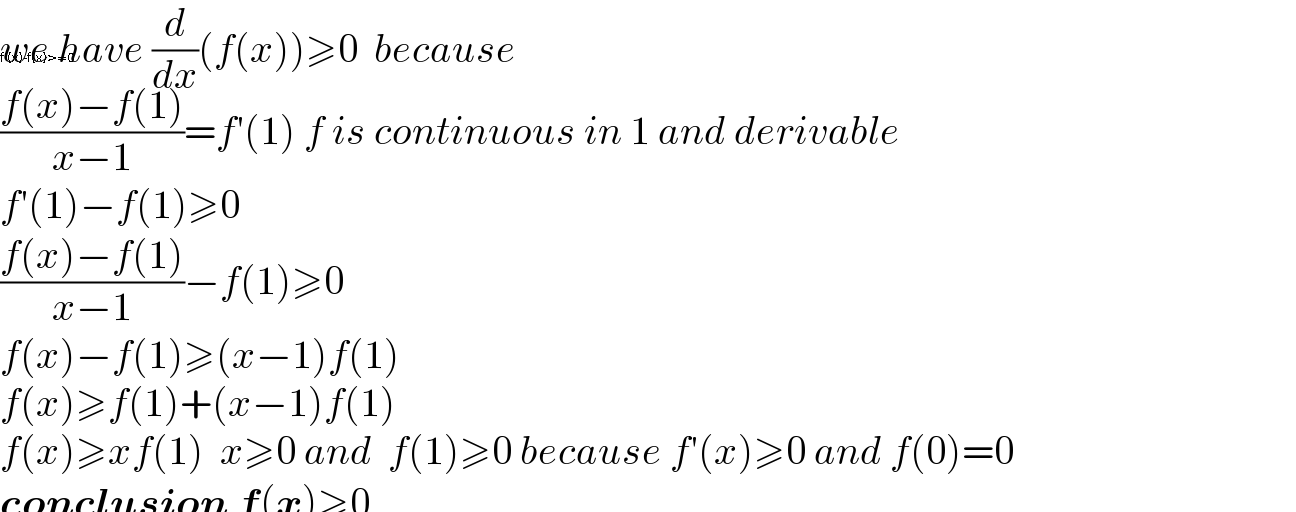Question Number 144270 by enter last updated on 24/Jun/21

Answered by ArielVyny last updated on 24/Jun/21
 $${we}\:{have}\:\frac{{d}}{{dx}}\left({f}\left({x}\right)\right)\geqslant\mathrm{0}\:\:{because}\: \\ $$f'(x)-f(x)>=0
$${we}\:{have}\:\frac{{d}}{{dx}}\left({f}\left({x}\right)\right)\geqslant\mathrm{0}\:\:{because}\: \\ $$f'(x)-f(x)>=0$$\frac{{f}\left({x}\right)−{f}\left(\mathrm{1}\right)}{{x}−\mathrm{1}}={f}'\left(\mathrm{1}\right)\:{f}\:{is}\:{continuous}\:{in}\:\mathrm{1}\:{and}\:{derivable} \\ $$$${f}'\left(\mathrm{1}\right)−{f}\left(\mathrm{1}\right)\geqslant\mathrm{0} \\ $$$$\frac{{f}\left({x}\right)−{f}\left(\mathrm{1}\right)}{{x}−\mathrm{1}}−{f}\left(\mathrm{1}\right)\geqslant\mathrm{0} \\ $$$${f}\left({x}\right)−{f}\left(\mathrm{1}\right)\geqslant\left({x}−\mathrm{1}\right){f}\left(\mathrm{1}\right) \\ $$$${f}\left({x}\right)\geqslant{f}\left(\mathrm{1}\right)+\left({x}−\mathrm{1}\right){f}\left(\mathrm{1}\right) \\ $$$${f}\left({x}\right)\geqslant{xf}\left(\mathrm{1}\right)\:\:{x}\geqslant\mathrm{0}\:{and}\:\:{f}\left(\mathrm{1}\right)\geqslant\mathrm{0}\:{because}\:{f}'\left({x}\right)\geqslant\mathrm{0}\:{and}\:{f}\left(\mathrm{0}\right)=\mathrm{0} \\ $$$$\boldsymbol{{conclusion}}\:\boldsymbol{{f}}\left(\boldsymbol{{x}}\right)\geqslant\mathrm{0} \\ $$
